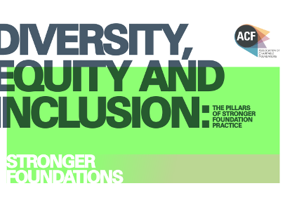Charities need to rethink how and why they value diversity in order to go beyond surface level actions, charity leaders heard last week.
Asif Afridi, deputy chief executive of brap, a charity that champions equality, was speaking at NPC’s annual conference last week during a panel discussion about diversity in the sector.
He said: “Diversity is not really a doing word”, it is more of a “description”.
“Often it is seen as a doing word”, but the sector must “go beyond representation when we think about diversity,” he said.
He added: “There is a reason that we only focus on certain aspects of diversity that are comfortable; it is largely because we do not value diversity.
“We tend to value things like turnover, size of charity, membership size, more than some of the other things that we need to value if we are going to have a sustainable and impactful future as a civil society,” he said.
People ‘just want to tick a box’
Fatima Iftikhar, founder of the diversity campaign #CharitySoWhite, said that words like “diversity, equality and inclusion” are often “used to pay lip-service” in connection with “surface level actions”.
She said this conversation is about “power and privilege”, adding that the world is “built on structures of power that oppress people of colour, that oppress women, that oppress LGBT people, that oppress disabled people. We are not in a bubble; our organisations are factors of this outside world.
“Without intentional work and action, those are the structures of power that your organisation is going to have,” she said.
Iftikhar spoke about people’s “unwillingness to give up space and give up power”. She said charity workers should not be forced to fit into existing power structures, as people “need to be ready to give up space”. The sector must realise “this work is going to be hard”.
What does good look like?
Responding to a question on what inclusion should look like, Sophie Livingstone, managing director of Trustees Unlimited, said “good does not look like the current stats of trustee boards”, as “of the 700,000 trustees in England and Wales, two thirds of them are men, 92 per cent of them are white and the average age is 55 to 64”.
“And if we are really talking about power, on foundation boards it is 98 percent white,” she added.
Livingstone said “those numbers need to change”, but echoed Afridi's statement that progress should be measured “in terms of how people feel in spaces”.
“It's about how it feels in the room”, said Livingstone.
Iftikhar added that progress looks like “when your staff team and your trustee board are actually reflective of the communities that you are serving”, and “the way that decisions are made in your organisation, the way that power is structured and putting your users first, and not your donors first”.
#CharitySoWhite has released a call to action, addressing actions that organisations should take to confront institutional racism in the charity sector, which can be found here.
|












